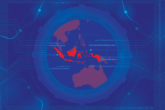May 30, 2018
Artificial Intelligence, International Competition, and the Balance of Power
In early September 2017, Russian President Vladimir Putin brought artificial intelligence from the labs of Silicon Valley, academia, and the basement of the Pentagon to the forefront of international politics. “Artificial intelligence is the future, not only for Russia, but for all humankind,” he said. “It comes with colossal opportunities, but also threats that are difficult to predict. Whoever becomes the leader in this sphere will become the ruler of the world.”
Putin’s remarks reflect a belief, growing in sectors and regions across the world, that advances in artificial intelligence will be critical for the future — in areas as varied as work, society, and military power. Artificial intelligence is a critical element of what Klaus Schwab, head of the World Economic Forum, calls the Fourth Industrial Revolution. Eric Schmidt, the former CEO of Google, argues that artificial intelligence is so important to the future of power that the United States needs a national strategy on artificial intelligence, just as it had one for the development of space technology during the Cold War. Elon Musk, the head of Tesla and SpaceX, has even said that growth in artificial intelligence technology, left unchecked, could risk sparking World War III. These statements suggest that artificial intelligence will have a large and potentially deterministic influence on global politics and the balance of power.
Read the Full Article at the Texas National Security Review
More from CNAS
-
Siliconsciousness: The AI Competition: Public Policy Strategies: Part 1
This episode comprises the first part of our special event, “The AI Competition: Public Policy Strategies”. The event, co-hosted by MIT Technology Review, brings together some...
By Dr. ED McGrady
-
How Drones in Ukraine Are Reshaping War
Samuel Bendett, a senior adjunct fellow at the Center for a New American Security, joins The Cipher Brief to discuss the current situation of drones being used in Ukraine.Watc...
By Samuel Bendett
-
Countering the Digital Silk Road: Indonesia
This year marks the 10th anniversary of the Digital Silk Road (DSR), China’s ambitious initiative to shape critical digital infrastructure around the world to advance its geop...
By Vivek Chilukuri & Ruby Scanlon
-
How Secure Is America’s AI Advantage?
https://www.youtube.com/watch?v=7njJkH7XRa8...
By Paul Scharre



